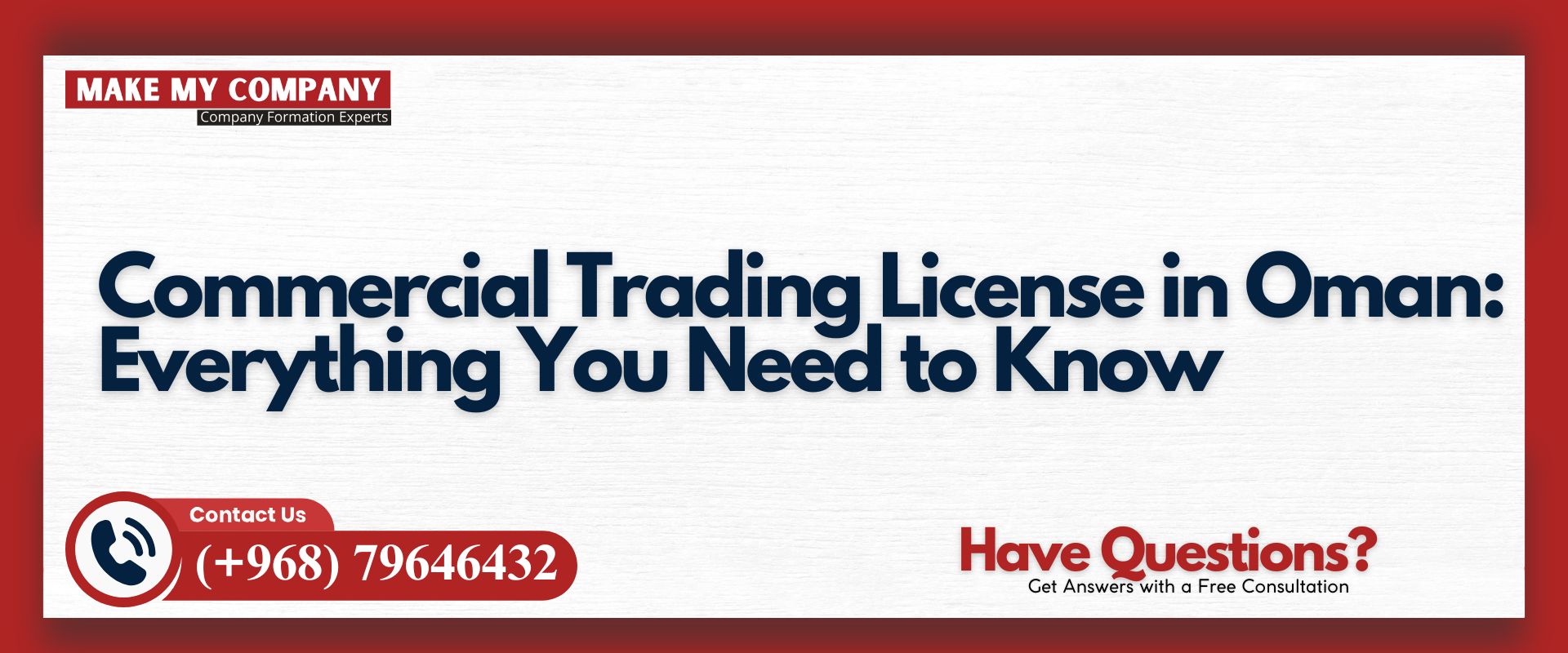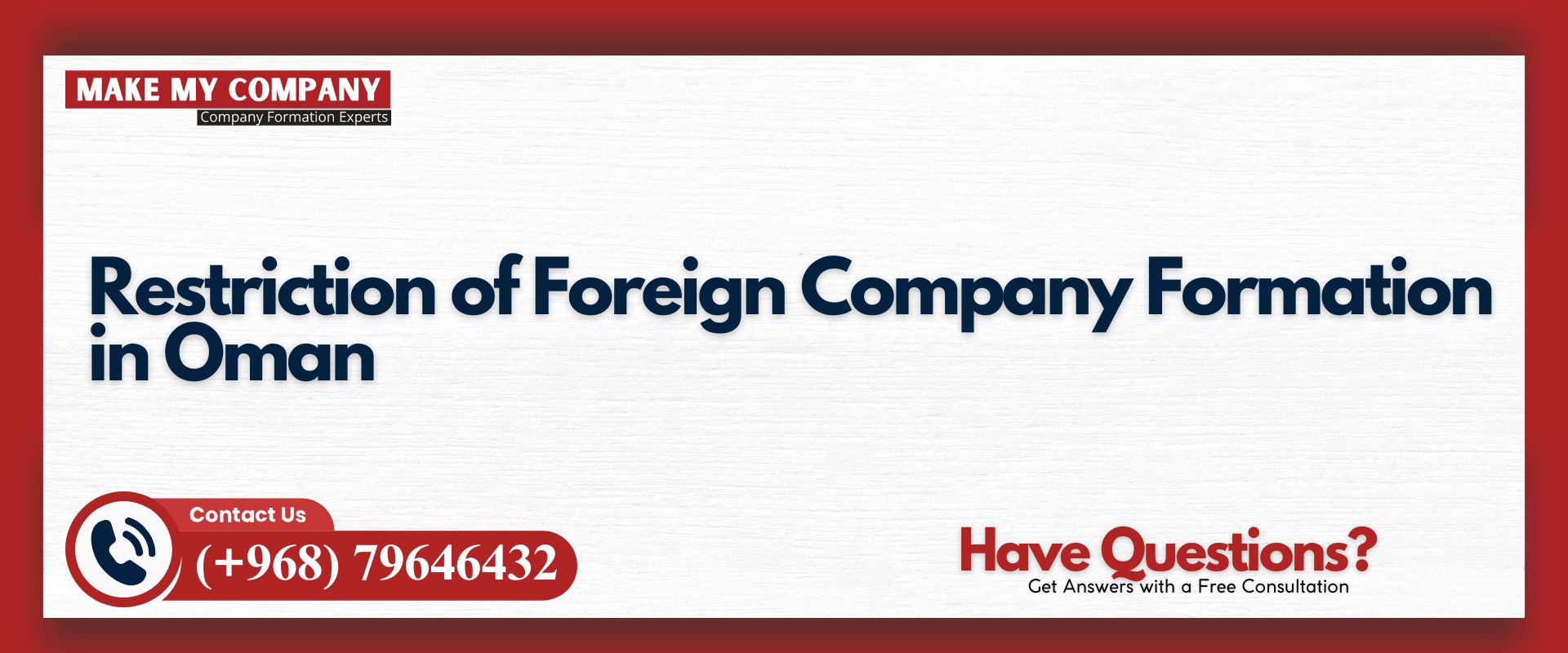Guiding the legal landscape of company registration in Oman can be a complex and daunting task, especially for those new to the business environment in the Sultanate. With a myriad of regulations, requirements, and procedures to comply with, it’s essential to have a comprehensive understanding of the legal framework to ensure a smooth and successful registration process. In this blog post, we delve into the crucial legal requirements for company registration in Oman, providing you with the knowledge and guidance you need to make informed decisions and establish your business on a solid legal foundation.
Choosing the Right Business Structure
One of the first and most critical decisions you’ll need to make when registering a company in Oman is selecting the appropriate business structure. The Sultanate offers various options, each with its own legal implications, ownership structures, and liability considerations. The most common business structures in Oman include:
- Limited Liability Company (LLC)
- Sole Proprietorship
- General Partnership
- Joint Stock Company (JSC)
- Branch Office
- Representative Office
Each structure has its own set of legal requirements, such as minimum capital requirements, shareholding restrictions, and reporting obligations. It’s essential to carefully evaluate your business goals, ownership preferences, and future growth plans to choose the most suitable structure that aligns with your needs and objectives.
Selecting a Company Name
In Oman, the selection of a company name is subject to specific legal requirements. Your chosen name must comply with the country’s naming conventions and be unique, avoiding any potential conflicts with existing businesses or trademarks. Additionally, certain words or phrases may be restricted or require special approvals, depending on the nature of your business activities.
To ensure compliance and avoid potential legal issues, it’s advisable to seek professional assistance in selecting and reserving your desired company name before proceeding with the registration process.
Minimum Capital Requirements
Depending on the chosen business structure, Oman imposes minimum capital requirements for company registration. These requirements are designed to ensure that businesses have sufficient financial resources to operate and meet their legal obligations.
For instance, Limited Liability Companies (LLCs) must have a minimum paid-up capital of OMR 20,000 (or its equivalent in another currency), while Joint Stock Companies (JSCs) have higher minimum capital requirements based on the number of shareholders and the nature of the business activities.
It’s crucial to be aware of and comply with these minimum capital requirements to avoid legal complications during the registration process or potential penalties for non-compliance.
Shareholding Structure and Ownership
Oman’s legal framework regulates the shareholding structure and ownership requirements for different types of business entities. For example, LLCs must have a minimum of two shareholders, while sole proprietorships are limited to a single owner.
Additionally, certain industries or sectors may have specific restrictions or limitations on foreign ownership or shareholding percentages. It’s important to understand these regulations and ensure that your proposed shareholding structure complies with the legal requirements.
Local Sponsorship
In some cases, particularly for foreign investors or companies operating in certain industries, Oman may require the appointment of a local sponsor or agent. This legal requirement aims to facilitate the company’s operations and ensure compliance with local laws and regulations.
The role and responsibilities of the local sponsor may vary depending on the specific circumstances, but they typically act as a liaison between the company and relevant government authorities, providing guidance and support on legal and regulatory matters.
Obtaining Necessary Licenses and Permits
Depending on the nature of your business activities, you may be required to obtain various licenses, permits, or approvals from relevant government authorities before commencing operations. These licenses and permits ensure compliance with industry-specific regulations, environmental standards, and other legal requirements.
Examples of licenses and permits that may be required include trade licenses, operational licenses, environmental permits, and sector-specific approvals. Failure to obtain the necessary licenses and permits can result in legal penalties and potential closure of your business operations.
Physical Presence and Office Space
Oman’s legal framework mandates that registered companies maintain a physical presence and dedicated office space within the Sultanate. This requirement aims to ensure that businesses have a legitimate and identifiable presence, facilitating regulatory oversight and compliance.
The specific requirements for office space may vary depending on the chosen business structure and the nature of your activities. It’s essential to secure appropriate office premises and comply with relevant zoning and safety regulations to avoid legal complications.
Taxation and Financial Obligations
As a registered company in Oman, you will be subject to various taxation and financial obligations as per the country’s legal framework. These obligations include:
- Corporate income tax: Companies in Oman are required to pay corporate income tax on their taxable profits, with rates varying depending on the industry and nature of business activities.
- Value-added tax (VAT): Oman implemented VAT in April 2021, requiring businesses to comply with VAT regulations, including registration, filing returns, and remitting VAT payments.
- Excise tax: Certain goods and services, such as tobacco products, energy drinks, and carbonated beverages, are subject to excise tax in Oman, with specific rates and compliance requirements.
- Financial reporting and auditing: Companies in Oman must maintain accurate financial records and comply with financial reporting requirements, which may include annual audits and the submission of financial statements.
Failure to comply with these taxation and financial obligations can result in legal penalties, fines, and potential legal action.
Hiring Employees and Employment Regulations
If you plan to hire employees for your business in Oman, you must comply with the country’s labor laws and employment regulations. These regulations cover various aspects of the employment relationship, including:
- Obtaining work permits and visas for foreign employees
- Minimum wage requirements
- Employee benefits and entitlements
- Workplace safety standards
- Termination and severance procedures
Failure to comply with these regulations can result in legal consequences, including fines, penalties, and potential legal action from employees or government authorities.
Intellectual Property Protection
Protecting your business’s intellectual property (IP) is crucial in today’s competitive landscape. Oman has established legal frameworks and regulations to safeguard various forms of IP, including trademarks, patents, copyrights, and trade secrets.
During the company registration process, it’s essential to take the necessary steps to secure your IP rights and ensure that your brand, inventions, and creative works are protected from infringement or unauthorized use. This may involve registering trademarks, applying for patents, or implementing appropriate measures to protect trade secrets and confidential information.
Neglecting IP protection can have severe legal consequences, including potential legal disputes, financial losses, and damage to your business’s reputation and competitive advantage.
Conclusion
Navigating the legal requirements for company registration in Oman can be a complex and intricate process, but with the right guidance and support, it can be a seamless and successful journey. At MakeMyCompany, we understand the intricacies of Oman’s legal landscape and are dedicated to providing comprehensive solutions to ensure your business is established on a solid legal foundation.
Our team of experienced professionals combines in-depth knowledge of legal requirements, industry expertise, and a commitment to excellence, guiding you through every step of the registration process. From choosing the right business structure to ensuring compliance with taxation, employment, and intellectual property regulations, we are your trusted partner in navigating the complexities of the legal landscape in Oman.
By partnering with MakeMyCompany, you gain access to a team of seasoned professionals who are dedicated to ensuring that your company registration journey is compliant, efficient, and tailored to your specific needs. Contact us today to learn more about our comprehensive company registration services and how we can support your business success in the dynamic market of Oman.
FAQs About Legal Requirements for Company Registration in Oman: What You Need to Know
What is the most common business structure for company registration in Oman?
The most common and widely adopted business structure for company registration in Oman is the Limited Liability Company (LLC). LLCs offer several advantages, including limited liability protection for shareholders, flexible ownership and management structures, and relatively lower capital requirements compared to other entity types.
LLCs in Oman must have a minimum of two shareholders and a maximum of seventy shareholders. The minimum paid-up capital requirement for an LLC is OMR 20,000 (or its equivalent in another currency). This business structure is suitable for a wide range of industries and business activities, making it a popular choice among both local and foreign investors.
What are the key documents required for company registration in Oman?
To register a company in Oman, you’ll need to prepare and submit several crucial documents. The key documents required for company registration in Oman include:
- Memorandum of Association (MoA): This document outlines the company’s objectives, authorized capital, and shareholding structure.
- Articles of Association (AoA): The AoA defines the company’s internal regulations, including the rights and responsibilities of shareholders, management structure, and decision-making processes.
- Shareholder information: Detailed information about the company’s shareholders, including their names, nationalities, and shareholding percentages.
- Proof of capital: Evidence of the company’s paid-up capital, typically in the form of bank statements or investment documentation.
- Passport copies and personal documents: Copies of passports, residential cards, and other personal documents of the shareholders and company representatives.
- No Objection Certificates (NOCs): In certain cases, such as for foreign investors or specific business activities, you may need to obtain NOCs from relevant government authorities.
- Business plan and feasibility studies: For certain company types or activities, you may be required to submit a comprehensive business plan and feasibility studies.
These documents must be accurately prepared and submitted to the relevant authorities, such as the Ministry of Commerce, Industry, and Investment Promotion (MOCIIP) or the free zone authority if you’re setting up a free zone company.
Can a foreign national own 100% of a company in Oman?
Yes, foreign nationals and investors can own 100% of a company in Oman, depending on the chosen business structure and industry sector. The Sultanate of Oman encourages foreign direct investment and offers various options for foreign ownership.
One of the most common avenues for 100% foreign ownership is establishing a company in one of Oman’s free zones. Free zones offer numerous benefits, including 100% foreign ownership, tax exemptions, and streamlined business operations.
Outside of free zones, foreign investors may be able to own 100% of certain types of companies, such as Limited Liability Companies (LLCs) or Branch Offices, subject to specific industry regulations and obtaining the necessary approvals from relevant authorities.
However, it’s important to note that certain strategic sectors or industries may have restrictions or limitations on foreign ownership percentages. It’s advisable to consult with experienced business setup consultants like MakeMyCompany to understand the specific regulations and requirements for your desired industry and business activities.
What are the key legal requirements for hiring employees in Oman?
If you plan to hire employees for your company in Oman, you must comply with the country’s labor laws and employment regulations. Some of the key legal requirements for hiring employees in Oman include:
- Obtaining work permits and visas: Foreign employees must have valid work permits and visas to legally work in Oman. The process for obtaining these documents involves fulfilling specific requirements and submitting the necessary applications to the relevant authorities.
- Minimum wage compliance: Oman has established minimum wage requirements for both Omani and expatriate employees, which must be adhered to by employers.
- Employee benefits and entitlements: Employers are legally required to provide employees with certain benefits and entitlements, such as paid annual leave, sick leave, end-of-service gratuities, and medical insurance (for expatriate employees).
- Workplace safety standards: Companies must comply with workplace safety standards and regulations to ensure a safe and healthy working environment for employees.
- Termination and severance procedures: Oman’s labor laws outline specific procedures and requirements for terminating employees, including notice periods and severance pay calculations.
- Omani national employment quotas: Depending on the industry and company size, there may be legal requirements to employ a certain percentage of Omani nationals within the workforce (Omanization).
Failure to comply with these legal requirements can result in penalties, fines, and potential legal action from employees or government authorities.
What is the importance of intellectual property (IP) protection during company registration in Oman?
Intellectual property (IP) protection is crucial during the company registration process in Oman, as it safeguards your business’s valuable assets, such as trademarks, patents, copyrights, and trade secrets.
Here are some key reasons why IP protection is essential:
- Brand recognition and reputation: Registering your company’s trademarks and logos in Oman helps protect your brand identity, preventing others from using it without authorization, and maintaining your reputation and market presence.
- Competitive advantage: Protecting your inventions, innovations, and unique processes through patents can give your business a significant competitive advantage in the market, preventing competitors from copying or exploiting your intellectual property.
- Legal recourse against infringement: With proper IP registration and protection, you gain legal recourse against infringement or unauthorized use of your intellectual property, allowing you to take legal action and seek damages or injunctions.
- Increased business value: Strong IP protection can enhance your company’s overall value and appeal to potential investors, partners, or buyers, as it demonstrates your commitment to safeguarding your valuable assets.
- Compliance with regulations: Certain industries or sectors in Oman may have specific IP requirements or regulations, and failing to comply with these can result in legal penalties or complications during the company registration process.
By prioritizing IP protection from the outset of your company registration journey, you can mitigate risks, safeguard your competitive advantages, and establish a solid legal foundation for your business operations in Oman.









